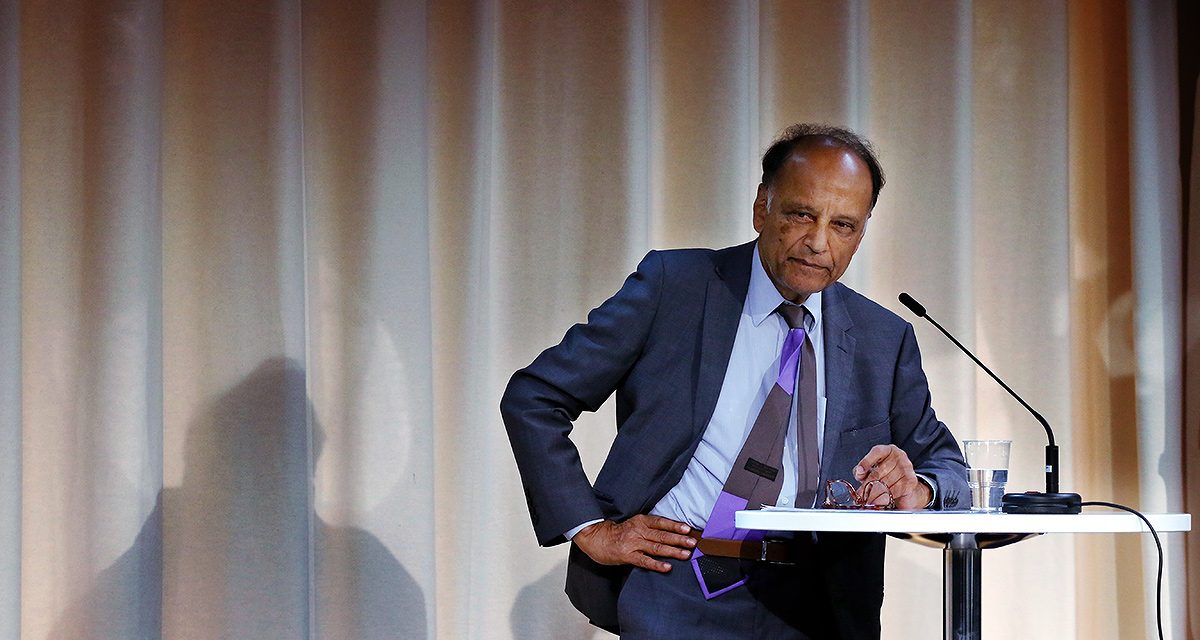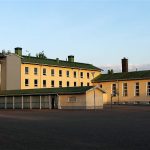Professor Sir Partha Dasgupta, an Indian-British economist, traveled to Finland to describe his findings from the Dasgupta Review, a report that has attracted wide international attention.

‘We have seen a sharp decline in natural capital in recent decades,’ said Professor Sir Partha Dasgupta, who described his findings in the Dasgupta Review on Wednesday, June 1, 2022, at Little Finlandia in Helsinki. Photograph: TONY ÖHBERG/FINLAND TODAY
The Dasgupta Review, a report, which has attracted wide international attention, describes nature as “our most precious asset” and posits that humanity has collectively mismanaged its global portfolio. Given that humanity’s demands far exceed nature’s capacity to supply goods and services, the review suggests that nature must be considered as an “asset” similar to produced and human capital to accurately reflect its worth and multi-faceted value in everyday life.
“Nature is almost invariably underpriced. . . if you add up the small areas worldwide, it’s an enormous amount,” said Professor Sir Partha Dasgupta, an Indian-British economist, who presented his findings from the Dasgupta Review in an economic conference on Wednesday at Little Finlandia in Helsinki.
Before Professor Dasgupta began his representation, the conference was opened by Prime Minister Sanna Marin (the SDP), and other Finnish ministers who gave commentary speeches included Annika Saarikko (the Center), the minister of finance, and Emma Kari (the Greens), the minister of the environment and climate change.
In her opening speech, Prime Minister Marin, who chairs the Economic Council, which arranged the conference, recalled that policymakers have already realized the severity of the global climate crisis and that a similar political will is now needed to halt the loss of biodiversity.
“How can we make the economy and the environment work together in a manner that will provide welfare for our citizens without risking the ecological capacity of the planet and the wellbeing of future generations?” Marin asked.
Minister Kari stressed the strong connection between the economy and nature. “We should treat natural capital like any other asset, and we must look after it for future generations. The sooner we act to halt biodiversity loss, the less we will have to pay for the measures.”
Minister Saarikko reminded the participants of the conference how challenging it is to safeguard biodiversity through economic policy instruments and noted that the work to identify and define risks to biodiversity is only just beginning.
The review estimates that we would need 1.6 Earths to maintain humanity’s current way of life.

Professor Dasgupta emphasized that nature should be considered one form of capital alongside economic and social capital. Photograph: TONY ÖHBERG/FINLAND TODAY
According to the Dasgupta Review, currently, nature’s worth is not reflected in market prices as much of it is open to use at no monetary charge. Beyond its intrinsic value, biodiversity provides cultural value, enhances individual lives and nourishes and protects, offering basic sustenance through food stocks to pollination of crops, soil regeneration, water and flooding regulation, for example.
The impacts of human interaction can be difficult to trace and be accounted for within institutions, while exploitation rather than protection is financially subsidized globally by approximately US$4 to 6 trillion per year. Recent decades of prosperity have come with a devastating ecological toll: the review estimates that we would need 1.6 Earths to maintain humanity’s current way of life.
To account for nature in economics and decision-making, the review builds on the idea that our economies are embedded within nature, not external to it: how these ecosystems function and how they are affected by economic activity, such as resource extraction and waste produced. To understand true sustainable growth, the impact of our interaction with nature must be factored in, and those interactions need to be in alignment with nature’s capacity to supply, conserve and restore its assets.
However, GDP does not currently account for depreciation of assets, including the natural environment, encouraging unsustainable economic growth and development.
The report argues that including nature as an asset would help to provide a better understanding of the benefits from investing in natural assets, as well as the trade-offs and interactions between other resources.
To provide this understanding, the measures of economic success would need to be revised to include natural capital in accounting systems.
The review also suggests that greater integration of local community understanding, national governments, international organizations, and global supply chains are required to plan effectively beyond national borders.
Supra-national institutional arrangements would need to be created, with payment systems for poorer countries to protect the vital ecosystems they contain—tropical rainforests and charges or “rents” for the use of regions outside borders, such as fishing and freight traffic on open oceans.
Finally, systemic change also requires that individual citizens are empowered to make informed choices and demand change, firmly establishing the natural world in education policy throughout an individual’s lifespan.













